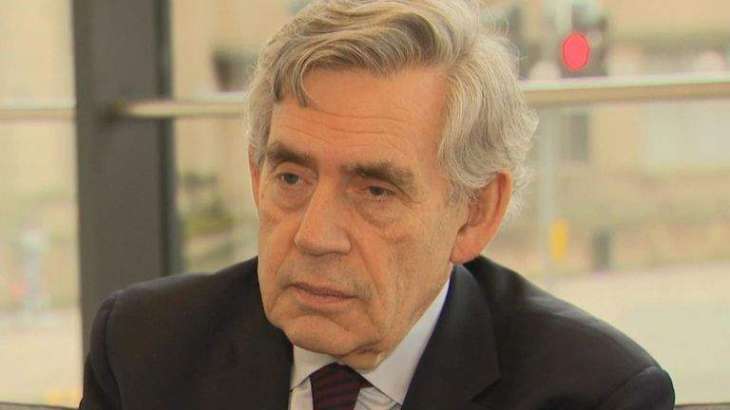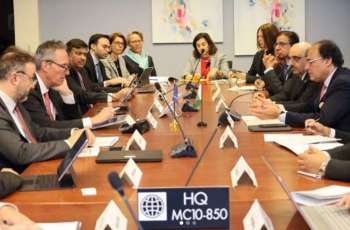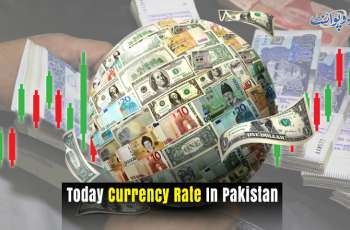The decision of UK Chancellor Rishi Sunak to cut the country's aid budget due to the recession the national economy suffered due to the COVID-19 pandemic will negatively affect the poorest layers of domestic and foreign populations hit by the pandemic, former Prime Minister Gordon Brown said on Wednesday
MOSCOW (Pakistan Point News / Sputnik - 03rd February, 2021) The decision of UK Chancellor Rishi Sunak to cut the country's aid budget due to the recession the national economy suffered due to the COVID-19 pandemic will negatively affect the poorest layers of domestic and foreign populations hit by the pandemic, former Prime Minister Gordon Brown said on Wednesday.
In November, Sunak announced a reduction in the UK aid budget from 0.7 percent to 0.5 percent of the country's income, citing the negative impact of the pandemic on the country's economy.
"Now, for the first time in two decades, global poverty is rising but, sadly, development aid is falling. We are depriving the world's most vulnerable of food, medical treatment, and schooling," Brown said, as quoted by The Guardian, adding that Sunak was "paying the bills for Covid off the backs of the poor - at home and abroad."
The former prime minister added that the reduction in the UK aid budget would deny over five million young people vaccinations against fatal illnesses and would result in thousands of deaths.
"Over 5 million young people will be denied the vaccinations for polio, measles and others they require, with the result that, according to a calculation by the Centre for Global Development, 100,000 children's lives that could have been saved will be lost. Four-and-a-half million fewer children a year will receive an education," Brown said.
According to the UK government, in 2019, the country allocated 15.2 billion Pounds [$20.4 billion] to the aid budget that was initially created in 1970. Over 56.4 percent of the funds were spent on humanitarian needs of the African countries, while more than 40 percent were provided to countries in Asia.




